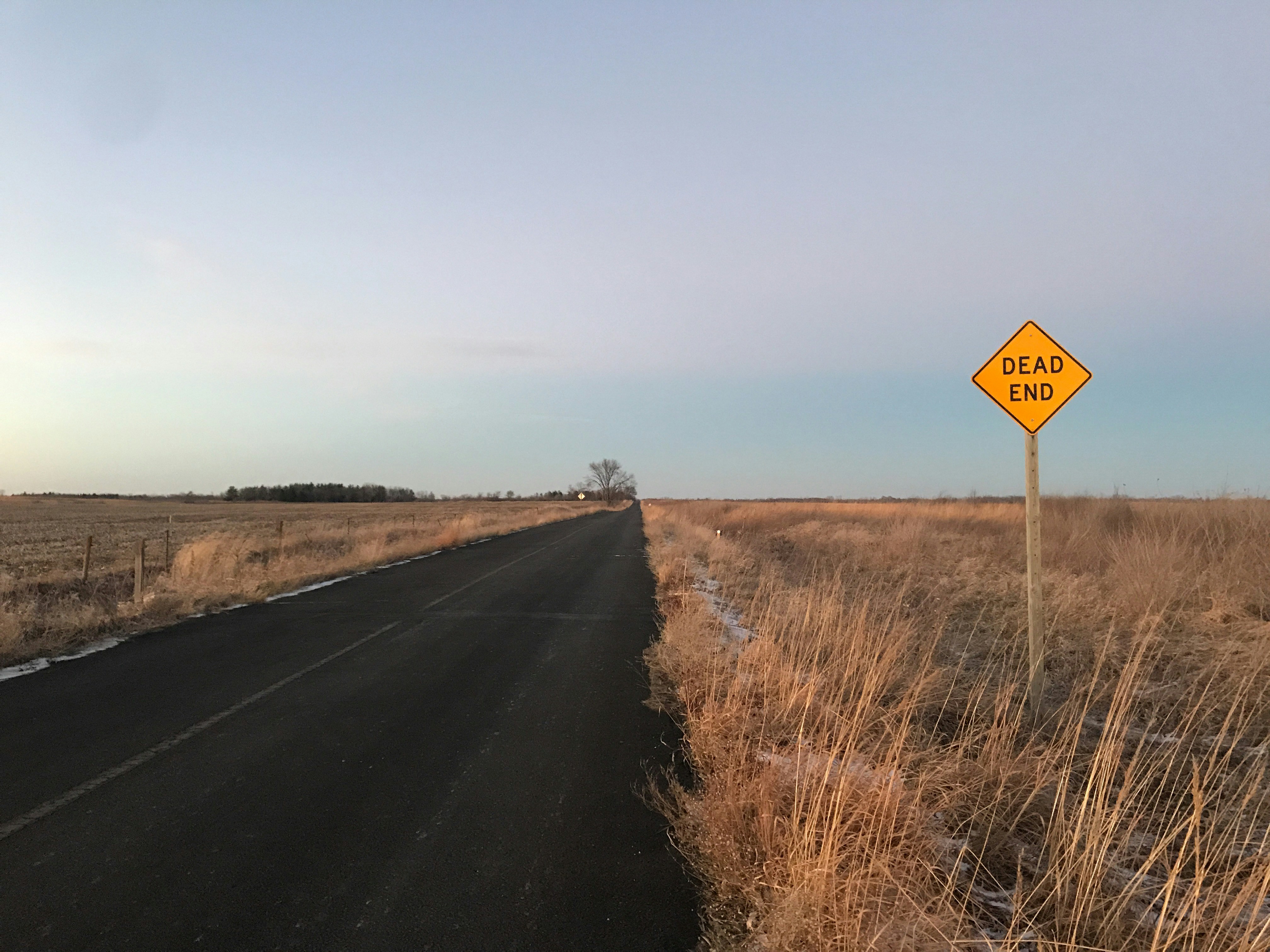I wonder what Peter thought when, after he said to Jesus, “You are the Messiah, the Son of the living God,” Jesus praised his answer and gave him authority over the Church, saying also, “The gates of the netherworld shall not prevail against it.”
Peter probably had a sense of security, of comfort, perhaps even of pride. Perhaps he thought that as long as he was with Jesus, the Messiah, everything would be alright. He would be safe. No harm could come to him, to Jesus, or to his friends. Then, shortly afterwards, Jesus began to tell them of the suffering, death, and resurrection He would undergo. I can imagine this shattered Peter’s sense of security. His voice rang out in protest. No, this will not happen! It cannot happen! You are the Christ!
As Christians, we do have a sense of security and of peace in our faith. God is in control. He is to be trusted and does have our good in mind. However, Jesus has also said, “In the world you will have trouble…” (John 16:33). Trouble does not feel safe or comfortable. It can feel downright dangerous and threatening.
Jesus says in tomorrow’s reading, “Whoever wishes to come after me must deny himself, take up his cross, and follow me” (Matthew 16:24). There are times I also want to protest against this suffering. I beg Jesus, can this not just be easy? Why must it be so difficult? But then I ask myself, does this difficulty mean that I am not safe or cared for? Not at all. Just as Jesus used something alarming and distressing (His Passion) to save us from our greatest threat – eternal separation from God – He does not abandon us in the carrying of our crosses either.
God’s ways are not our ways, nor are His thoughts our thoughts (cf. Isaiah 55:8-9). How many times have I stood, even for a time, in the way of God’s plans because I thought the difficult road was a dead end rather than a passage to something better? How many times have I been afraid of being abandoned in the hour of my greatest need and clung too hard to the feeling of security? How many times have I given in to the lies of the great deceiver, the enemy of our souls, rather than trusting in our Lord’s promises?
Yet our Lord’s promises still remain. “In the world you will have trouble, but take courage, I have conquered the world” (John 16:33). Despite all appearances, God has conquered. The rocky road is not a dead end. We will never be abandoned. Jesus is Lord, now and forever.
Me pregunto qué pensó Pedro cuando, después de decirle a Jesús: “Tú eres el Mesías, el Hijo de Dios vivo”, Jesús elogió su respuesta y le dio autoridad sobre la Iglesia, diciendo también: “Los poderes del infierno no prevalecerán sobre ella”.
Pedro probablemente tenía una sensación de seguridad, de consuelo, tal vez incluso de orgullo. Quizás pensó que mientras estuviera con Jesús, el Mesías, todo estaría bien. Estaría a salvo. Ningún daño podría sobrevenirle a él, a Jesús ni a sus amigos. Entonces, poco después, Jesús comenzó a hablarles del sufrimiento, la muerte y la resurrección que sufriría. Puedo imaginar que esto destrozó la sensación de seguridad de Pedro. Su voz resonó en protesta. ¡Esto no sucederá! ¡No puede suceder! ¡Tú eres el Cristo!
Como cristianos, tenemos una sensación de seguridad y paz en nuestra fe. Dios tiene el control. Es confiable y se preocupa por nuestro bien. Sin embargo, Jesús también dijo: “En el mundo tendrán tribulaciones” (Juan 16,33). Las tribulaciones no nos hacen sentir seguros ni cómodos. Pueden parecernos realmente peligrosos y amenazantes.
Jesús dice en la lectura de mañana: “El que quiera venir conmigo, que renuncie a sí mismo, que tome su cruz y me siga” (Mateo 16,24). A veces también quiero protestar contra este sufrimiento. Le ruego a Jesús: ¿Acaso no puede ser fácil? ¿Por qué tiene que ser tan difícil? Pero luego me pregunto: ¿Acaso esta dificultad significa que no estoy segura ni cuidada? Por supuesto que no. Así como Jesús utilizó algo alarmante y angustioso (su Pasión) para salvarnos de la amenaza más grande: la separación eterna de Dios, tampoco nos abandona al cargar con nuestras cruces.
Los caminos de Dios no son nuestros caminos, ni sus pensamientos son nuestros pensamientos (cf. Isaías 55,8-9). ¿Cuántas veces me he interpuesto, aunque sea por un tiempo, en el camino de los planes de Dios porque pensé que el camino difícil era un callejón sin salida en lugar de un camino hacia algo mejor? ¿Cuántas veces he temido ser abandonado en los momentos de mayor necesidad y me he aferrado demasiado a la sensación de seguridad? ¿Cuántas veces he cedido a las mentiras del gran engañador, el enemigo de nuestras almas, en lugar de confiar en las promesas de nuestro Señor?
Sin embargo, las promesas de nuestro Señor aún permanecen. “En el mundo tendrán aflicción; pero tengan confianza, yo he vencido al mundo” (Juan 16,33). A pesar de todas las apariencias, Dios ha vencido. El camino pedregoso no es un callejón sin salida. Nunca seremos abandonados. Jesús es el Señor, ahora y para siempre.
 Kimberly Andrich writes from the perspective of having a hidden, chronic illness and experiencing a deep, continuous conversion through being yoked to Jesus in the day-to-day trials and joys of life. She is a wife, mother of 5, and daughter of the King. Kimberly also writes for Catholicmom.com and on fallingonhisgrace.substack.com.
Kimberly Andrich writes from the perspective of having a hidden, chronic illness and experiencing a deep, continuous conversion through being yoked to Jesus in the day-to-day trials and joys of life. She is a wife, mother of 5, and daughter of the King. Kimberly also writes for Catholicmom.com and on fallingonhisgrace.substack.com.
Feature Image Credit: Everett Bartels, unsplash.com/photos/black-asphalt-road-between-brown-grass-field-during-daytime-FJMK4VKW-Xw
The views and opinions expressed in the Inspiration Daily blog are solely those of the original authors and contributors. These views and opinions do not necessarily represent those of Diocesan, the Diocesan staff, or other contributors to this blog.

